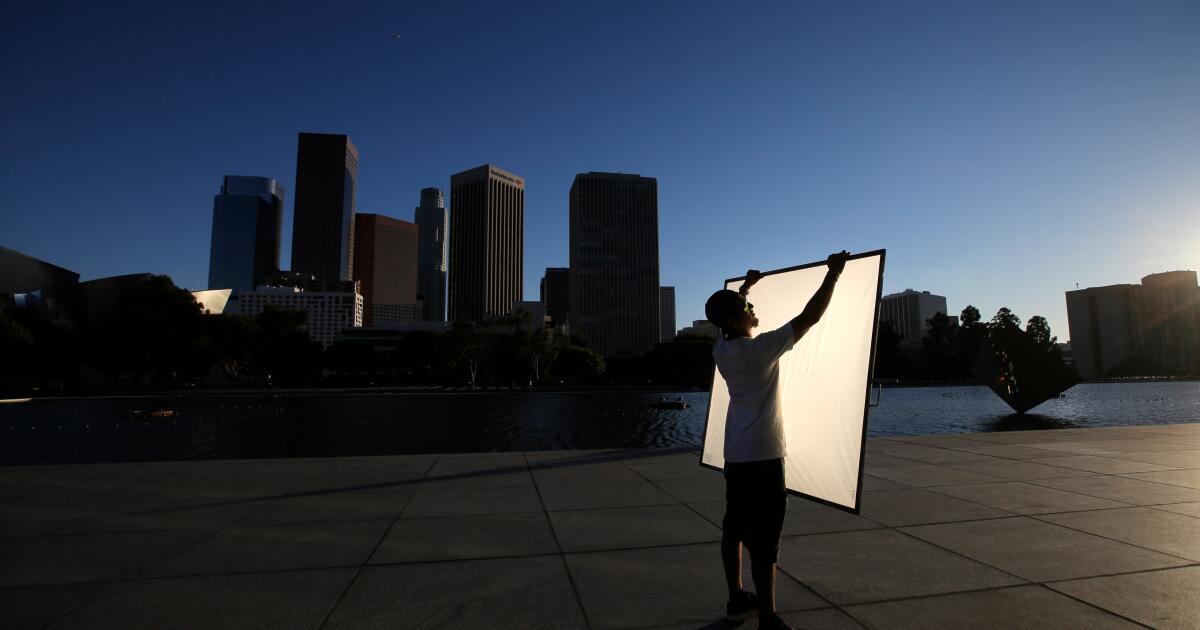22 TV series will receive a California film tax credit
Nearly two dozen television shows will receive incentives for shooting in California — including two series that relocated from Texas and Canada — in the first award period since the state bolstered its film and TV tax credit program earlier this summer.
The 22 shows were chosen amid a massive amount of interest in the state’s incentive program, which now has an annual cap of $750 million, up from $330 million. In this round, the California Film Commission saw a nearly 400% increase in applications, said Colleen Bell, the agency’s executive director.
“These enhancements to our program, they’re not just about curbing runaway production,” she said in an interview. “We’re building momentum to grow and expand production here in California.”
In total, the 22 shows were allocated $255.9 million in credits and are expected to generate about $1.1 billion of economic activity in California, she said. The productions are estimated to employ 6,500 cast and crew members and more than 46,000 background actors.
Of the 22 awarded series, 15 were new projects, five were recurring shows and two relocated from outside of California, including Tom Segura’s darkly comedic Netflix series “Bad Thoughts,” which previously filmed in Texas.
Apple TV+ comedy “The Studio” and legal thriller “Presumed Innocent” received production incentives, as did CBS’ “NCIS: Origins,” a new HBO series by comedian Larry David, a pilot called “Group Chat” from “black-ish” creator Kenya Barris and a new Hulu drama from Dan Fogelman of “Paradise” and “This is Us.” All of the qualified projects that applied were able to get a tax credit in this round, Bell said.
“California has long been the entertainment capital of the world — and the newly expanded film and TV tax credit program is keeping it that way,” Gov. Gavin Newsom said in a statement. “We’re not just protecting our legacy — we’re reminding the world why the Golden State remains the beating heart of film and television.”
Newsom called for an expansion of the state’s film and TV tax credit program late last year in an attempt to stem the tide of productions moving to other states or countries with lucrative incentive packages. Hollywood studios, producers, unions and other workers rallied around the issue for months, traveling up to Sacramento to lobby legislators about the importance of the entertainment industry to California’s economy.
In addition to the higher cap, the revamped program broadened the types of productions eligible for incentives, including half-hour television shows, certain large-scale competition shows and animated shorts, series and films.
For this round of incentives, the California Film Commission was able to consider all of the new categories except for animated shows and large-scale competition shows because those require new regulations that are being drafted, Bell said. Those categories could be eligible starting early next year, she said.
The new program provisions also upped the tax credit to as much as 35% of qualified expenditures for productions filmed in the greater Los Angeles area, and up to 40% for projects shot outside the region. For this application period, most of the series will shoot in the L.A. area, except for four that will shoot at least partially outside of that zone, Bell said.
“People want to shoot their projects here in California,” Bell said. “Now, decision makers are giving California a second look because we have made these important programmatic changes that have made us much more competitive with other jurisdictions.”

